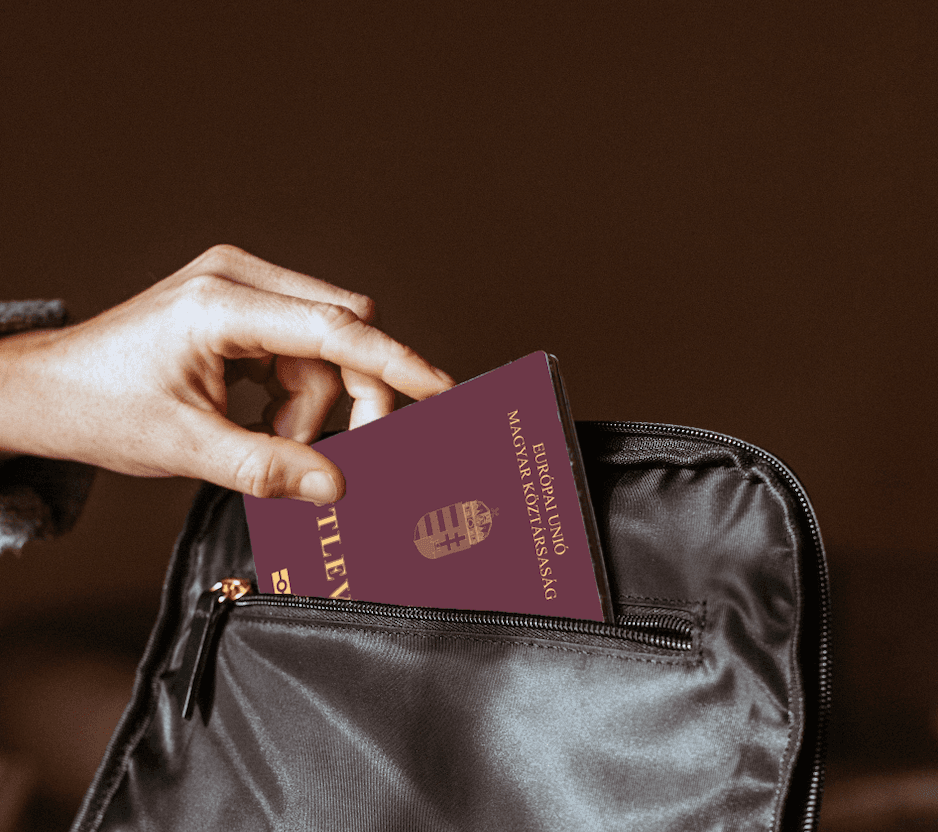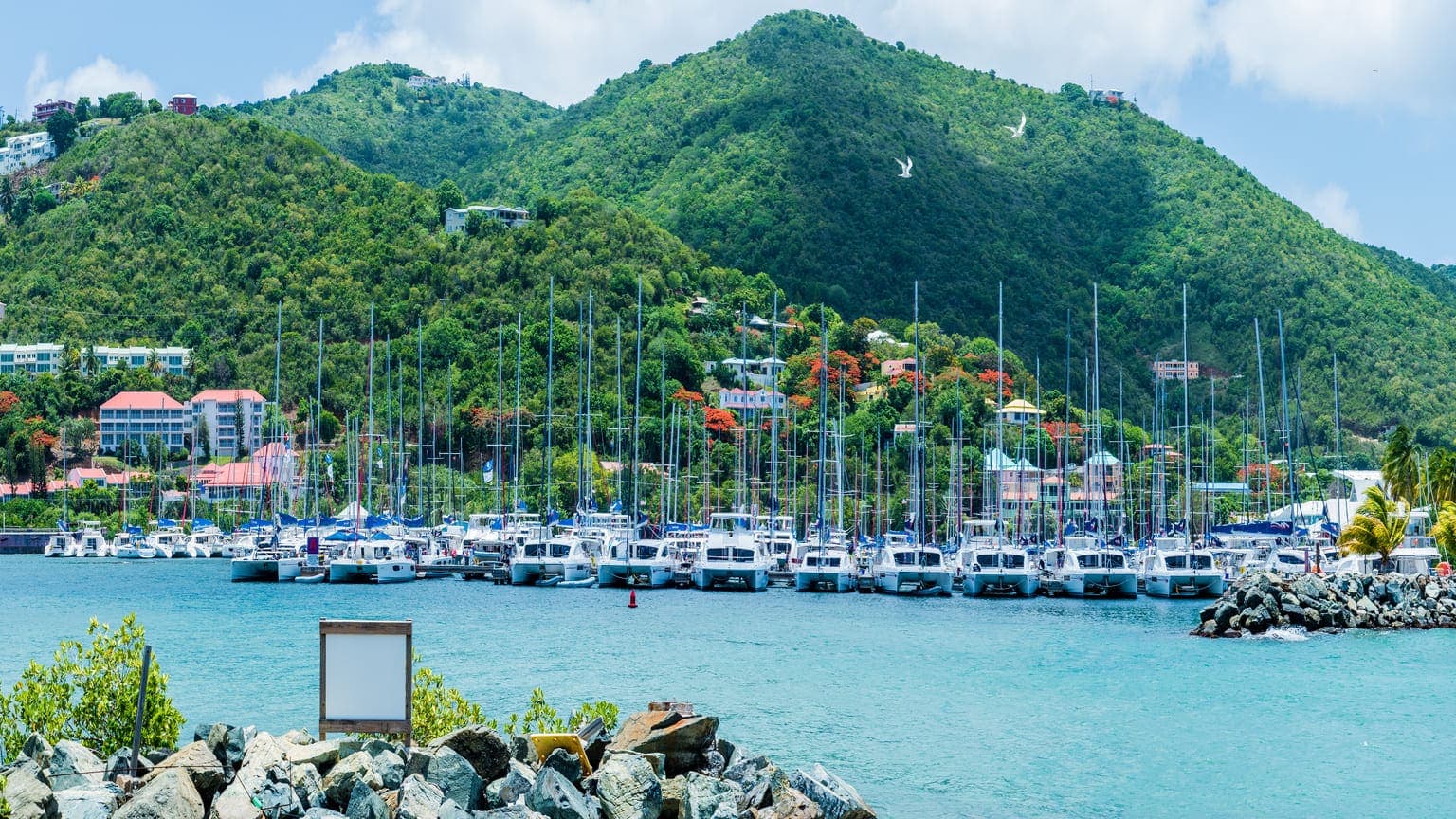Summary
Benefits of second citizenship depend on the country in which one obtains a passport.
Caribbean citizenship allows travel without visas to more than 100 countries, while with a Maltese passport, one can choose to live in any EU country and visit 169 nations freely.
Second citizenship can also have certain disadvantages. For example, in the United States, individuals with multiple nationalities may face restrictions on holding security clearance or specific government jobs, particularly those involving sensitive national security positions.
Difference between dual and second citizenship
A person can have citizenship in several states. In this case, it is referred to as multiple citizenship: dual or second. One can hold even three passports if the legislation of all three countries permits becoming a citizen of another state.
There are dual and second citizenships. Each status has its advantages and disadvantages.
Dual citizenship involves states recognising a person's status in both countries. In this case, one pays taxes and performs military service only in the country of residence. Dual citizenship can only be obtained by citizens of countries that have an effective agreement on dual citizenship.
One advantage of dual citizenship is the opportunity to choose the country in which to live, pay taxes, and serve in the military. An individual also receives a pension and social benefits only in one state.
If a cosmopolitan acquires citizenship of a country that does not have a citizenship agreement with their home country, it is a question of second citizenship, not dual citizenship.
Second citizenship assumes that each of the countries considers a person only its citizen and does not recognise their obligations to another state.
Second citizenship can be obtained by naturalisation after living in a country for several years as a resident. Some states grant passports for investments in the economy, which is typically faster and easier than naturalisation.
Second citizenship is obtained for various reasons, such as visa-free travel, business development, or relocation to another state.
Citizens of two or more states are called multiple nationals. Multiple citizenship was first mentioned in the UN Charter after World War II, when many people became forced migrants.
When a person obtains second, third, and subsequent citizenship in another state, multiple nationality arises with a nominal status. The possession of a second passport from a foreign state is not regulated by either federal law or international treaties.
In some countries, obtaining a second passport is prohibited by law. To become a citizen of such countries, one must renounce their first citizenship.
These rules apply, for example, in Spain, India, China, and Singapore. However, in certain cases, countries may allow individuals to retain their original citizenship if it was granted for exceptional reasons, such as citizenship by merit.
10 advantages of second citizenship
1. Visa-free travel. Second citizenship can open new travel opportunities if a country has many visa-waiver agreements with other countries.
Third-country nationals generally cannot freely visit the UK, the USA, China, or EU countries, as they require a visa. Second citizenship can solve this problem. For example, individuals with a passport from a Caribbean country or Malta can visit Schengen countries without a visa.
Visa-free travel with second citizenship
2. Better conditions for obtaining a US visa. Second citizenship might simplify the process of obtaining a US visa. Citizens of Caribbean countries can receive a B-1/B-2 visa for ten years, while citizens of Vanuatu are eligible for a visa valid for five years.
Citizens of Grenada can apply for an E‑2 business visa due to a special agreement with the USA. The E-2 visa allows a Grenadian citizen to move to the US with their family.
To qualify, the applicant must live in Grenada for three years, open or purchase a business in the United States, and make a substantial investment. Although there is no minimum threshold, investments typically start from $200,000.
3. Enhanced study and work opportunities. Second citizenship enables individuals to live, study, and work in their second nationality’s country without obtaining additional visas or permits. A second passport can also facilitate access to education in other countries.
A second passport allows children of cosmopolitans to study abroad without needing a student visa or extend the time available to seek employment after graduation. For example, in Switzerland, graduates must secure a job within six months, and in the UK foreigners have only four months. A second passport can remove these restrictions.
4. Access to higher-level medicine. To seek treatment abroad, one usually needs a medical visa or even a residence permit, if the treatment takes long.
With second citizenship, a cosmopolitan can avoid spending time on obtaining a visa and immediately fly to the country of their second nationality. It may also provide visa-free access to certain other countries for urgent medical needs.
If a cosmopolitan with a Caribbean passport needs to urgently go to a clinic in Germany, Switzerland, or the UK, they can fly into the country without a visa and stay there for up to 3 months. Malta participates in the US Visa Waiver program, so its citizens do not need a US medical visa for treatment up to 90 days.
Vanuatu citizenship can be obtained in 2—4 months, so documents can be issued even during treatment abroad. The investor only needs to visit the country or one of its consulates to submit biometrics. This helps to spend the rehabilitation period in comfortable conditions.
5. Tax optimisation. Second citizenship allows its holder to settle in another country and become its tax resident. In this case, the individual can pay taxes at the rates of their second citizenship’s country, potentially reducing their tax burden.

Gareth,
Entrepreneur from England
St Kitts and Nevis citizenship to reduce tax burden
Gareth wanted a secluded retreat away from the fast-paced life of London and rising living costs in the UK. He also sought to reduce his tax burden and create a safe haven in a region he already knew and loved: the Caribbean.
Immigrant Invest experts helped Gareth obtain St Kitts and Nevis citizenship by investment.
6. Business development abroad. Entrepreneurs with second citizenship can establish companies abroad, simplifying business operations. This eliminates the need for intermediaries and avoids currency control restrictions.
Second passport holders can choose jurisdictions with favourable business conditions. For example, Caribbean countries do not disclose company owner information or enter it into public registers. International Business Companies in the Caribbean are exempt from submitting reports or undergoing annual audits.
Additionally, Caribbean countries impose no strict currency control regulations.
7. Opportunity to move to another country. A second passport allows its holder to move to the country of second citizenship and reside there permanently without restrictions.
Sometimes a passport gives several alternatives for moving. For example, a Grenadian passport allows relocation to Grenada or obtaining an E‑2 visa to move to the United States.
8. Enhanced financial opportunities. Second citizenship can grant access to diverse banking systems, making it easier to open accounts, secure loans, and invest. Some countries offer better banking privacy or investment structures, protecting wealth and improving investors' financial portfolios.
9. Expanded property ownership rights. Second citizenship eliminates restrictions that some countries impose on property purchases by foreigners. It enables investors to acquire real estate under more favourable conditions and benefit from local tax advantages on acquisitions or sales.
10. Easier family reunification. Many countries allow citizens’ relatives to obtain residence permits or permanent residence through family reunification. Streamlined procedures may also be available for family members to acquire citizenship.
Second citizenship obtained through investment programs often extends to immediate family members, granting them the same benefits of a second passport, such as freedom of travel, the right to live and work in the country, and access to education and healthcare.

Roshan and Samadhi,
Tea company shareholders from Sri Lanka
Antigua and Barbuda passport for travel to the UK to visit family
Roshan and Samadhi faced visa challenges when visiting their son Lakmal, who studies at the University of London. They were also concerned about Lakmal’s future job prospects and opportunity to remain in the UK after graduation due to strict visa rules.
Roshan decided to secure Antigua and Barbuda citizenship for his family.
Roshan and Samadhi can now visit Lakmal without visa hassles, and Lakmal benefits from enhanced opportunities as a Commonwealth citizen, including access to scholarships for higher education.
Disadvantages of second citizenship
Mandatory notice. Some countries require individuals to notify the government about obtaining second citizenship. For delay or concealment of information, administrative and criminal liability is provided, e.g. fine or correctional labour.
Prohibition to work in government agencies. In some countries, citizens with a second passport cannot hold elected office or work in government bodies. They are ineligible to become prosecutors, deputies, ministers, or judges.
Increased tax rates. Second citizenship does not inherently increase taxes. Tax rates in the country of the first citizenship can only increase if the dual citizen moves to another country for more than 183 days and loses their tax residency in the first one.
If there is no double taxation treaty between the two countries of one’s citizenship, the individual’s global income may be taxed in both jurisdictions. This leads to a higher overall tax burden, as the individual must fulfil tax obligations in each country.
Difficulties in case of conflict between countries. Since both countries recognise the person solely as their citizen, conflicts between the countries may force the individual to choose where to perform military service. Selecting one country may lead to prosecution in the other.
This issue does not affect participants of investment programs. As a rule, neither investors nor their family members are required to perform military service in the second citizenship’s country.
Reduced benefits in the home country. Holding second citizenship can impact eligibility for social and financial benefits. For example, some countries, such as the US, reduce or deny social security payments to retirees living abroad for extended periods, especially in non-treaty nations.
Residency-based benefits, including unemployment support, healthcare, or housing assistance, may only be available to residents, leaving dual citizens living abroad without access. Additionally, access to subsidised education may be restricted if dual citizens are classified as non-residents.
Requirements to obtain a second passport
General requirements for applicants. Regardless of the chosen pathway, applicants must meet the following standard criteria:
-
have a clean criminal record;
-
prove their eligibility;
-
provide proof of the legal source of income.
Some countries also require applicants to undergo medical examinations to confirm good health.
The investment pathway to citizenship typically allows extending citizenship to the main applicant’s family members. All CBI programs allow applicants to include spouses and children under 18. Some programs permit the inclusion of other relatives, such as adult children, siblings, parents, or even grandparents.
Documents needed for acquiring a second passport depend on the country and the pathway to citizenship. However, the following documents are commonly required across most countries:
-
a valid passport;
-
a birth certificate;
-
passport-size photographs;
-
a criminal record certificate from the applicant’s country of birth and any country of residence;
-
recent bank statements demonstrating financial stability and the legal source of funds;
-
a health certificate to ensure the applicant does not have serious diseases;
-
marriage or divorce certificates, if applicable;
-
for naturalisation, evidence of legal residence in the country for the required period;
-
for citizenship by investment, documentation confirming that the applicant has met the investment requirements stipulated by the citizenship program;
-
language proficiency certificate, if applicable.
All documents not in the official language of the destination country must be translated by a certified translator. Notarisation and apostille may also be required to authenticate the documents.
Requirements for different citizenship by investment programs
How to get second citizenship
The process of obtaining second citizenship depends on the chosen country and pathway.
Typically, applicants must gather the required documents and submit them to relevant authorities. In most cases, applicants must also pass a language proficiency test and an exam on the country’s history and laws.
Below, we outline the process for obtaining citizenship by investment, one of the fastest and most straightforward routes, which generally spans six to twelve months.
1 day
Preliminary Due Diligence
A preliminary assessment is conducted to evaluate the applicant’s eligibility and minimise rejection risks.
Immigrant Invest performs this initial due diligence, reviewing the applicant’s passport and basic documents to ensure compliance with Anti-Money Laundering regulations and other standards.
A preliminary assessment is conducted to evaluate the applicant’s eligibility and minimise rejection risks.
Immigrant Invest performs this initial due diligence, reviewing the applicant’s passport and basic documents to ensure compliance with Anti-Money Laundering regulations and other standards.
2—4 weeks
Gathering required documents
Applicants must prepare personal and financial documents, such as passports, photos, police clearance certificates, and documents proving the legal origin of investment funds. Some countries may require additional documents, like health certificates or tax statements.
In most cases, documents must be translated, notarised, and apostilled. Immigrant Invest provides clear instructions and handles notarisation and translation.
Applicants must prepare personal and financial documents, such as passports, photos, police clearance certificates, and documents proving the legal origin of investment funds. Some countries may require additional documents, like health certificates or tax statements.
In most cases, documents must be translated, notarised, and apostilled. Immigrant Invest provides clear instructions and handles notarisation and translation.
4—12 weeks
Investing
The core of CBI involves a qualifying investment, which may include one of the following:
-
purchasing government-approved real estate;
-
contributing to a national development fund;
-
financing a business;
-
making a donation.
Minimum investment thresholds vary by country, starting at $130,000 in Vanuatu.
Non-refundable contributions are typically the most affordable option, while real estate and other assets require higher amounts. In some cases, investors must pay a deposit to reserve property or meet initial conditions before completing the full investment.
The core of CBI involves a qualifying investment, which may include one of the following:
-
purchasing government-approved real estate;
-
contributing to a national development fund;
-
financing a business;
-
making a donation.
Minimum investment thresholds vary by country, starting at $130,000 in Vanuatu.
Non-refundable contributions are typically the most affordable option, while real estate and other assets require higher amounts. In some cases, investors must pay a deposit to reserve property or meet initial conditions before completing the full investment.
Up to 4 weeks
Applying for a residence permit, if required
In countries where residency is a prerequisite to citizenship, applicants may need a temporary residence permit. This process can often be initiated online, with documents submitted digitally or in person.
The permit signals the intent to acquire citizenship and provides a legal basis for staying in the country during the application process.
In countries where residency is a prerequisite to citizenship, applicants may need a temporary residence permit. This process can often be initiated online, with documents submitted digitally or in person.
The permit signals the intent to acquire citizenship and provides a legal basis for staying in the country during the application process.
Up to 12 weeks
Submitting a citizenship application
Once the investment is completed and documents are prepared, the official citizenship application is submitted. Applicants may need to provide a copy of the residence permit, submit biometric data, and complete other formalities required by the immigration office.
The reviewing process, including background checks, is conducted by the relevant ministry or governmental body.
Once the investment is completed and documents are prepared, the official citizenship application is submitted. Applicants may need to provide a copy of the residence permit, submit biometric data, and complete other formalities required by the immigration office.
The reviewing process, including background checks, is conducted by the relevant ministry or governmental body.
1—2 weeks
Obtaining citizenship and collecting a passport
After citizenship is granted, applicants receive a citizenship certificate and can apply for a passport. This process may take a few additional days, especially if in-person collection is required. Some countries allow legal representatives to collect the passport on behalf of the applicant if travel is not feasible.
After citizenship is granted, applicants receive a citizenship certificate and can apply for a passport. This process may take a few additional days, especially if in-person collection is required. Some countries allow legal representatives to collect the passport on behalf of the applicant if travel is not feasible.
Where you can and cannot have second citizenship
Countries follow varying policies on second citizenship, often distinguishing between their citizens and immigrants. Some states allow foreigners to acquire second citizenship while prohibiting it for their own citizens.
The laws of each state provide for their own conditions and restrictions on issuing passports to foreigners, depending on the method of obtaining citizenship.
For example, in Austria, naturalisation usually requires renouncing the first citizenship. However, individuals granted Austrian citizenship for exceptional achievements in such fields as science, sports, arts, or business may be allowed to retain their original nationality.
Key takeaways about pros and cons of second citizenship
-
Difference between second citizenship and dual citizenship is that in the first case countries do not formally recognise the other nationality, treating an individual solely as their citizen.
-
Second citizenship can be acquired through naturalisation, marriage, ancestry, or investment, each with specific requirements and processes.
-
Second passport benefits include increased freedom of travel, often granting visa-free or visa-on-arrival access to numerous destinations. Holding a second passport can also facilitate business expansion, financial diversification, and potentially tax optimisation.
-
Second citizenship disadvantages include possible restrictions to hold government or military positions and the requirement to notify authorities of multiple nationalities.
-
Citizenship by investment programs offer a fast route to obtaining a second passport, often within months, without the need for residency in the country.
Immigrant Invest is a licensed agent for citizenship and residence by investment programs in the EU, the Caribbean, Asia, and the Middle East. Take advantage of our global 15-year expertise — schedule a meeting with our investment programs experts.






















